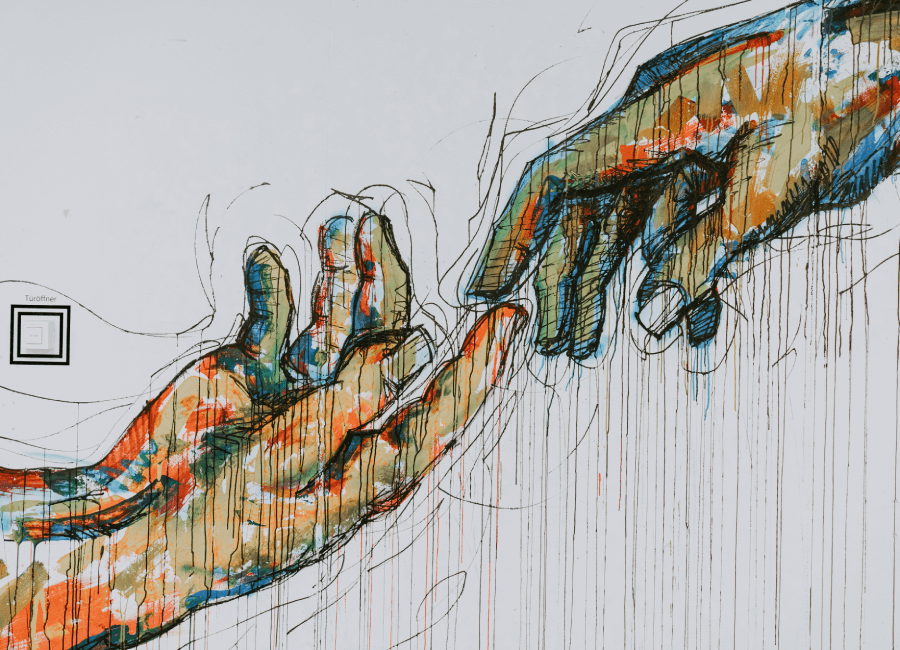We live more and more aspects of our lives through the prism of technology, whether that’s interacting with traditional computers, phones, smart devices or even wearables. Behind all of these technologies sit huge numbers of dedicated software developers creating unique new experiences (or just battling through the mounds of technical debt for more venerable ones!). In this blog, I look at the impact of developer involvement in the research process.
Leading Edge: the Importance of UX
With so much research being carried out online, the importance of software in mediating the research experience becomes key. In traditional face-to-face methods, researchers needed to be concerned about their impact on research participants’ responses, in both designing and conducting research. Examples of this would be practices in good research design such as representative sample selection, avoiding leading questions, avoiding biasing participants’ responses, and being aware of the observer effect when conducting research.
Once we add online research technology into the mix, another potential level of effect is introduced. Not only do online research tools have to work reliably (so that participants can take part in the research), they need to be engaging and pleasant to use (so that respondents continue to take part). Further to this, there is also a need to ensure that the software itself does not influence participant response in an unexpected fashion, for example with interfaces that set the bar high in terms of research task completion so that participants who are less technically-savvy or who do not have the very latest devices cannot take part, thus biasing results. Therefore, a focus on providing a good User Experience (UX) for both participants taking part in research activities and researchers using the system to create, deploy and analyse those activities is an essential part of the development team’s remit. This requires the development team to work closely with users and stakeholders in order to understand the requirements of researchers and participants.
Artificial Intelligence & Machine learning
So, having satisfied ourselves that we have a working research platform with a positive User Experience (UX), we can start to look to the future. We have discussed the requirements to build an online research platform that enables us to easily ask questions and listen to users. But what if the research platform could learn how to ask questions itself? And what if it could then generate the holy grail of ‘insight’ from the analysis it conducts on that data?
As our CEO Paul Hudson explained in his presentation for Qual360 North America, developing chatbots with the purpose of conducting meaningful, useful research interviews is not without its difficulties. The skill of a successful research interview is understanding, empathising and asking follow on questions based on deductions and hypotheses formulated whilst listening to the respondent. Without this and with merely serving up questions based on closed responses, what you really have is a voice controlled and speech -led survey system, which is admittedly pretty cool, but not a replacement for in-depth qual.
However, machine learning certainly has a role already in the analysis of text, images, speech and video. The ability to code and tag text and classify objects, emotion and sentiment in videos and images is invaluable for researchers running both long-term community panels and ad-hoc research projects. Thus, software developers with skills around speech and language processing and AI are very much in demand. Even then, though, we are in the realms of codification and classification, not of understanding and insight.
Immersive Experiences
Virtual Reality (VR) and associated immersive experiences have the potential to, and in some cases already are, transform online research as we know it. Devices such as the Oculus Rift are starting to appear in more people’s homes as the price of VR technology goes down to the end user; a smartphone and a Google Cardboard type set up is much cheaper (or even free). Virtual Reality immersive research is often associated with in-store, Point-of-Sale research because it is clearly visual (and replaces established ‘real world’ methods like accompanied shop interviews). However, VR can also be used to help shift participants’ perspectives, allowing them to literally see themselves in someone else’s shoes; it can also help them to make assessments of products and services in a different context.
Developers with a background in computer games development are particularly well placed to work on these kinds of projects, because of the technical, design and UX skills they have developed.
Rapid Prototyping
The final role I want to discuss for developers is for those client-side or working in an agency close to the product. Here, developers have a role in rapid prototyping and tweaking of products, services and interfaces in specific research projects or on an on-going basis, as part of an agile conversation with users engaging in product development and usability research.
| Tweet This | |
| Having developers embedded in the online research process allows for a much more free-flowing, iterative approach to product and service development. |
I’ve discussed agile development in a previous blog post. Having developers embedded in the research process allows for a much more free-flowing, iterative approach to product and service development. On the client side, we’ve seen projects where the client has got their own development team involved to the extent that they would share a site with their customers, run an online focus group to get feedback on it, make changes there and then; as a follow up, if more changes are made, another focus group can be run a day or so later to review the changes with the same customers. This approach requires everyone involved to be open to agile practices and high levels of communication to be maintained on all sides.
In Summary
There are many ways that developers shape research experiences in an online research setting; therefore, it is worth investing in carefully in recruiting, developing and progressing your in-house software development team as well as being well networked enough to be able to bring in freelancers and specialists as required.

















